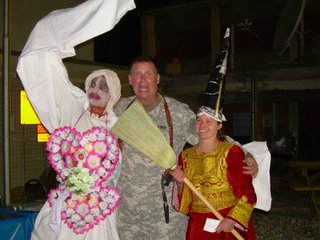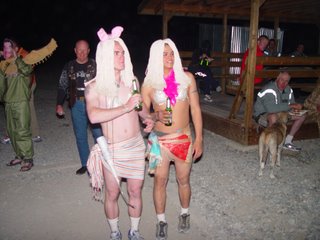It has been a while since I have been regularly blogging. There has been a tremendous change in my professional role here in Afghanistan and it has only become more exhilarating. In the two days since I have been assigned as the Operations and Training Officer for the Training Assistance Group, Kabul Military Training Center (KMTC), I have hardly stopped.
My position is normally assigned to a Lt. Col., which is one grade higher than Maj. and a sign on trust and confidence from my command that I am honored by. The operational tempo here is no less than it was as the public affairs officer, but it moves at a different pace. Our role here is to be the advisors and mentors of the Afghan National Army's training leadership. The primary officer I will advise is Afghan Colonel Hasim. He is the Director of Training and Education, but is currently serving as the Chief of Operations and Training for the KMTC. I will do my best to meet with him daily and have for the first three days that I have been here. Through our interpreter, he explained "It makes me most happy when you and Capt. Miner are here." Miner, the assistant S-3, is a chunk of gold. He is an intelligent and decisive officer with a methodical approach to nearly everything he is involved with. It is very clear that he will be a tremendous asset in learning the needs, capabilities and shortcomings of the ANA.
This morning, we started our day with the graduation of Kandak (or battalion) 55. That is the 55th battalion of soldiers to have graduated basic training from the KMTC. It was an abbreviated ceremony as it is only the second week of Ramazan (Ramadan in Afghanistan) the month of fasting in the Muslim calendar. So they are prohibited from marching, exercise, eating or allowing anything to pass their lips from sun up to sun down. the ceremony had several speeches and the honor students were recognized before all of their peers.
Afterward we wandered around just under a thousand newly minted soldiers from all walks of life in Afghanistan. Some were in thei late thirties, some maybe in their forties, but most were in their late teens and early twenties. My name in Dari is "
Jaglan Khaowie" or Major Strong. Most of the Afghans really get me to ham it up when they hear me say my name in Dari. They all start flexing their muscles and wanting me to do the same.
At one point, using my interpreter, I asked him to relay a message to all of them. "I have been in the Army for 21 years. I have seen many thousands of soldiers from many countries in that time. But nothing makes me more proud than to see the looks on your faces knowing that you have completed this training and are preparing to defend your country. You are great soldiers and you should be very proud of yourselves. Tashakur! Tabrik! Tabrik! (Thank you! Congratulations! Congratulations!") Then seeing the eldest of the group, a man easily in his late thirties or forty, I walked up to him and shook his hand and asked my terp to translate for me again, "You are a special soldier because it takes a lot to be the older more experienced man in a company of younger men. You must set the example for these young soldiers because they will relay on your experience and maturity to understand the challenges they will face." As the interpreter translated all that I said, the man continued to hold my hand, staring right into my eyes. The grey lined corners of his jet black beard lifted with his smile as he thanked me for my comments. He grabbed my shoulders and pulled me to him saying "Tashakur." It made me feel like those few minutes had made a difference to him and to the young soldiers surrounding him. It also seemed to elevate his status amongst them, recognizing anew that he was indeed the most experienced in life in Afghanistan.
From there we met with a group of MPRI contractors to discuss some of the details of building doctrinal publications for the Afghans. A group of three retired military officers and NCOs, assisted by three valuable interpreters that seemed to be doctoral level linguists, they were all very capable at the jobs they were doing in advising the Afghan commanders and their staffs. They are some of the unsung heroes in this conflict. It seems so easy to criticize the efforts of contractors when viewed through a lens of revolving door politically connected white collar suits in Washington that rotate from government to high level corporate positions in the money pool that flows into Iraq and Afghanistan. But it is different at the tactical level, where these men and women are continuing to serve the needs of their own country while assisting another with the skills sets that they have built over decades of experience in similarly challenging environments.
We then met with COL Hashim again and discussed some of the meeting notes and some recommendations about how best to get the newly graduated soldiers forward to their gaining units. We always have to remember that this is an operational environment and that these troops, for the most part, are going to be through into the fight within weeks from today. It is a thought that rarely leaves the minds of these trainers, mentors, advisors and the Afghans responsible for them.
The day continued with an office call with our commander, COL Jim Lyman, also of the Willamette Valley in Oregon, which led to our departure for Camp Phoenix. Forming a two vehicle convoy, we loaded into our up-armored HMMWV, the M114. It is an impressive machine and one that has proven its worth again and again over the past three years it has been in the field. We loaded our weapons and did our functions checks of all the equipment, our radios and then I squeezed my six foot four frame into its compressing driver's seat, strapped on the helmet radio and we hit the road.
It is hard to explain to folks back home just how different this type of driving is from jumping into a contoured leather seat in an SUV or Sports car, Hybrid or luxury ride. It just is not comfortable at all. You are always looking for the threat, always talking to the two or three other people in the rig and always wearing no less than sixty lbs of gear on your body that covers every inch of skinn but your nose and mouth. Gloves, neck guard, helmet, body armor, uniform, boots, personal side arm and rifle, all on your body or within minimum reach while driving to a meeting less than six miles away.
We had our meeting, met with several staff officers. I went and got a haircut while there. The Khyrgistani women that work at the barber shop asked me what my wife looked like. I whipped out my pocket folder of photos that is always on my person in my cargo pocket and gave them the booklet, as one of them kept cutting my hair, the other asked to look at all the pictures. With images of my wife, Margaret, and I in Berlin and Prague, Monterrey and Paris, and shots of my boys in the lush greeen or snowy hills of Portland and Bandon, one of them asked "Your wife, she is photo-model?" "No," I explained "but she is my favorite model." "You are I think...very lucky man." I said that she was right and paid for the cut, left a tip and joined my crew at the rigs. We again loaded on our gear and hit the road, taking extra caution as we were moving at night. In the darkness, men of ill-intentions lurk in this country. And finding them is a challenge. We made it back in good time and called it a day.
They are long days here when you are deployed away from home. But they are wonderfully full with short moments of greatness that make it all worth while.
As I conclude the day, I am reminded of the words of the woman that cut my hair tonight...a lucky man indeed.
-out here.

 The French paratrooper as the wicked witch was a treat and the former Legionnaire Lt. Col. with six foot extended arms and a ghastly face were definately a sign that I had missed a show of rare fare.
The French paratrooper as the wicked witch was a treat and the former Legionnaire Lt. Col. with six foot extended arms and a ghastly face were definately a sign that I had missed a show of rare fare.